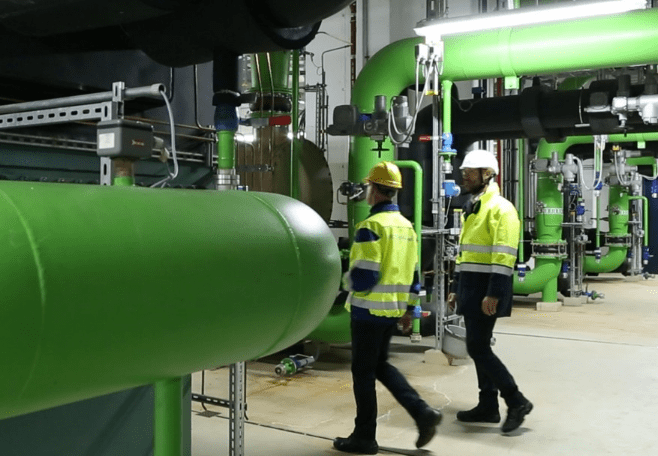While there are many methods of producing low-carbon hydrogen, green hydrogen is the most sustainable, making it the ideal production method, noted the UK government.
Green hydrogen could facilitate the total decarbonization of the energy sector, thanks to the flexibility of hydrogen production and storage.
Hydrogen could be a suitable option for those sectors where it is difficult to reduce the volume of emissions and there are few decarbonization options, for example, heavy transport modes (such as aviation, shipping and heavy road freight).
What is global decarbonization? It refers to the reduction of carbon and other greenhouse gas emissions with the aim of addressing climate change and moving towards a more sustainable, low-carbon economy.
This process involves the transition from fossil fuel-based energy sources to cleaner, renewable forms, as well as the implementation of technologies and practices that minimize carbon emissions in various sectors.
Low-carbon hydrogen can be produced by electrolysis (using low-carbon electricity, e.g., from renewable or nuclear energy) or from fossil fuels with carbon capture, storage and utilization.
Some companies in the green hydrogen sector are Siemens Energy, NEL ASA, Plug Power, Ballard Power Systems, McPhy Energy, ITM Power, Air Liquide, Enel Green Power, Ørsted and Hyundai Hydrogen Mobility.
Hydrogen
There are other production methods that can also have low carbon emissions, such as biomass gasification and methane pyrolysis, provided they meet certain standards, such as the UK National Low Carbon Hydrogen Standard.
Hydrogen can be used as a thermal fuel, similar to natural gas, and to generate electricity using modified gas turbines or fuel cells.
In addition, hydrogen can be transformed into different fuels and feedstocks, such as ammonia.
Thanks to this versatility, low-carbon hydrogen can be integrated into existing export value chains and facilitate decarbonized production of those products that have traditionally generated a large volume of emissions, such as steel, aluminum and ammonia.

